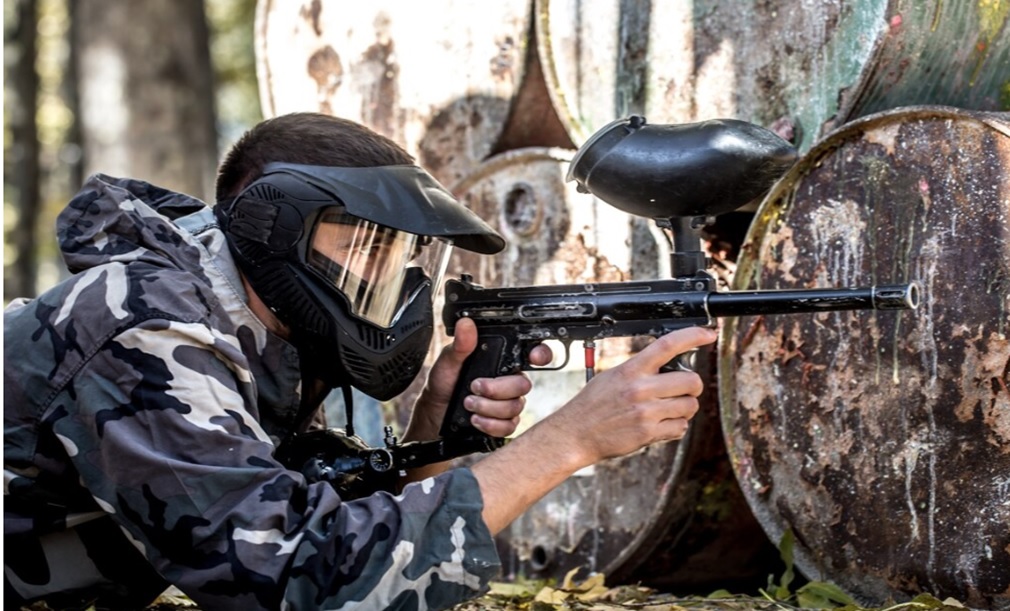
Is Paintball Considered a Sport? Why or Why Not?
Paintball, often perceived as a recreational activity, has evolved into a competitive and organized endeavor, leading to debates over whether it should be classified as a sport. To answer this question, it’s important to explore the defining aspects of a sport and analyze how paintball fits into that framework. For some, the physical and mental demands of paintball make it an obvious candidate for sport status, while others see it primarily as a casual activity. Let’s break down the argument from both perspectives.
Defining a Sport
A sport is traditionally defined as a physical activity that requires skill, involves competition, and is governed by a set of rules. There’s also a competitive element, where individuals or teams strive to achieve a specific outcome, usually in a structured or organized setting. Common examples include basketball, football, soccer, and tennis, all of which require athletic ability, strategy, and adherence to established guidelines.
When viewed through this lens, paintball shares many similarities with these recognized sports. Participants engage in a physically demanding activity, compete against each other, and adhere to rules designed to ensure fair play. But does paintball meet all the criteria that are traditionally associated with sports? Let’s explore.
Physical Exertion in Paintball
One of the core components of any sport is physical exertion, and paintball certainly meets this criterion. Players often sprint across the field, crouch behind cover, and execute quick movements to avoid being hit by opponents. The constant physical activity involved in paintball requires stamina, agility, and coordination. Participants often wear heavy gear, such as masks and protective clothing, which adds to the physical demands of the game.
Paintball’s physical intensity is comparable to that of other recognized sports. For example, like soccer or basketball, paintball requires players to be in motion throughout the game, responding quickly to changes on the field. The bursts of running and dodging during a paintball match can raise heart rates, burn calories, and build endurance, much like traditional athletic sports.
Strategic and Mental Challenges
Another aspect that defines a sport is the need for strategy and mental acuity. In paintball, strategy is critical for success. Players must develop plans for attacking or defending objectives, communicate effectively with their team, and anticipate their opponents’ movements. Whether playing in an organized tournament or a casual match, paintball requires sharp decision-making and teamwork to achieve victory.
The strategic nature of paintball extends beyond the physical actions on the field. Players must also manage their ammunition, monitor their surroundings, and coordinate with teammates. These elements of planning and tactical thinking parallel the mental demands seen in recognized sports like football, where playbooks and coordinated team actions are crucial.
Competition and Rules
Paintball involves structured competition, especially in organized leagues and tournaments. Teams face off against one another in an effort to accomplish specific objectives, such as capturing a flag or eliminating opponents from the game. These events often follow a standardized set of rules, much like other sports, to ensure fair competition and consistency.
In competitive paintball, referees enforce the rules, and players are required to adhere to them, adding a layer of discipline and structure that is typically seen in traditional sports. Organized paintball tournaments can include multiple teams competing for trophies, rankings, and recognition, further solidifying the argument that paintball operates within a competitive sporting framework.
The Casual Nature of Paintball
On the other hand, many people participate in paintball as a recreational activity, viewing it more as a fun weekend pastime than a serious athletic endeavor. Casual paintball games often lack the structured competition and rigorous rules found in organized sports. For some, paintball is more akin to a hobby or social activity, similar to activities like bowling or laser tag, which can be played both recreationally or competitively but are not always considered sports in the traditional sense.
This perception of paintball as a fun, laid-back activity might lead some to question whether it should truly be classified as a sport. In many instances, paintball is played as a way to bond with friends, blow off steam, or simply enjoy a novel form of entertainment, without the pressure of winning or strict adherence to rules.
The Evolution of Paintball into a Competitive Sport
While casual paintball remains popular, there is no denying the rise of professional paintball leagues and tournaments. Competitive paintball events draw skilled athletes who train rigorously to excel in the sport. These tournaments feature professional teams, sponsors, and organized rankings, which are all hallmarks of a traditional sport.
Professional players often compete for substantial prizes and prestige, and teams practice regularly to improve their techniques, physical fitness, and strategies. The growing professional circuit supports the view that paintball has evolved beyond a casual activity into a legitimate sport, with the same structure and opportunities as other recognized athletic competitions.
So, is paintball considered a sport? The answer depends on how one defines sport and the context in which paintball is played. From a physical, mental, and competitive standpoint, paintball meets many of the criteria that traditionally define a sport. It requires athleticism, strategy, and adherence to rules, especially in organized settings like tournaments.
However, for those who approach paintball as a casual, recreational activity, it may be viewed more as a fun game rather than a serious sport. Ultimately, whether paintball is classified as a sport can vary depending on how it’s played and perceived by participants, but it certainly possesses the characteristics needed to be recognized as one.
This article was written by an expert at Commando Paintball Sports Park. Commando Paintball Sports Park ensures that all guests enjoy their adventure and have an unforgettable experience. Commando Paintball Sport Park offers a variety of services and amenities that will enhance your experience, both on and off the field. Commando Paintball Sports Park has been adding new ways to make customers happy. Here are just some of the reasons why customers continue to return when looking for corporate parties venues Appleton WI


